The University of Lagos (UNILAG) played host to a significant event on Wednesday, July 23, 2025 — the Dissemination Ceremony of the Commonwealth Futures Climate Research Cohort Fellowship. Held at the Arthur Mbanefo Digital Research Centre, the event was more than a culmination of a two-year fellowship; it was a demonstration of how climate-responsive research can spark real change when grounded in community collaboration and global engagement.
Jointly organised by the Association of Commonwealth Universities (ACU) and the British Council, the fellowship supported 18 early-career researchers from 10 Commonwealth nations in developing localised, practical solutions to climate challenges.
Ilaje Community as a Case Study in Climate Science
Representing Nigeria was Dr. Temitope Sogbanmu, an environmental toxicologist and senior lecturer in the Department of Zoology, UNILAG. Her research project, “Identification of Water Security Solutions and Climate Change Adaptation through Citizen Science and Co-Creation in Low and Middle-Income Countries,” focused on Ilaje, a coastal community grappling with severe water insecurity.
With dangerously high levels of lead, arsenic, fluoride, and iron found in the area’s borehole water — and only three working public water points available — Dr. Sogbanmu integrated rigorous water testing with community engagement. She trained residents to test water quality themselves, transforming them from passive recipients into active co-researchers.
“Most residents rely on salty, unsafe water sources,” Dr. Sogbanmu noted. “This project is not just about gathering data; it’s about co-creating long-term solutions with the people most impacted.”
Her counterparts — Dr. Parimala Renganayaki (India) and Dr. Kingsley Orievulu (South Africa) — implemented similar participatory research in Vellore and KwaZulu-Natal, respectively, highlighting the shared global struggles of climate vulnerability and water insecurity.
Integrating Local Innovation into Urban Planning
Another UNILAG fellow, Dr. Haruna Jimoh of the Department of Urban and Regional Planning, explored how community-driven innovations can be effectively integrated into formal urban planning. His project, “Strengthening Community-led Innovations for Climate Resilience through Formal Planning Systems,” was conducted in partnership with Dr. Chinwe Ogunji (AE-FUNAI, Nigeria) and Dr. Aidatu Abubakari (University of Ghana), under the mentorship of Dr. Tom Tanner (University of London).
Their collaborative research addressed the disconnect between top-down planning systems and the lived experiences of residents in informal settlements. Findings across Ghana and Nigeria revealed unregulated urban expansion and underscored the necessity of participatory, inclusive planning for climate resilience.
UNILAG’s Enduring Research Vision
Representing the Vice-Chancellor, Professor Folasade T. Ogunsola, OON, FAS, the Deputy Vice-Chancellor (Academic & Research), Professor Bola Oboh, reaffirmed UNILAG’s dedication to impactful, community-based research.
“This event is not an end, but a springboard. It reflects UNILAG’s continued commitment to partnerships and research that uplift communities while addressing global environmental challenges,” she said.
Also present were Professor Solomon Okunuga, Director of the Research Management Office (RMO), and Dr. Victor Onifade, Deputy Director at the Office of International Relations, Partnerships & Prospects (IRPP), who represented the Director, Professor Adegboyega Ibraheem. Both reiterated the university’s support for interdisciplinary, ethical, and results-oriented research.
Global Collaboration, Local Action
The event featured presentations from fellows across India, South Africa, Kenya, and Ghana, focusing on diverse yet interconnected themes — from urban climate adaptation to legal frameworks for climate justice.
George Lakey of the ACU praised the fellows for producing “actionable insights that transcend theory and directly influence community solutions.”
Dr. Feng Mao, Associate Professor at the University of Warwick, emphasized the vital role of international collaboration in fostering a sustainable future.
Donna McGowan, British Council Country Director for Nigeria & West Africa, joined virtually to commend the fellowship’s real-world impact.
Head of Higher Education at the British Council Nigeria, Daniel Emenahor, described the initiative as “a benchmark for building capacity through education, innovation, and inclusion.”
—
Day Two: Strategic Planning for Future Impact
On Thursday, July 24, 2025, the ACU team facilitated a follow-up strategic session with UNILAG stakeholders, aimed at exploring grant opportunities, enhancing research capacity, and expanding funding avenues. This interactive session solidified the partnership between ACU and UNILAG, laying the groundwork for further integration of climate-smart, community-led research into local development agendas.
From Research to Resilience
From Ilaje’s boreholes to academic institutions across continents, the Commonwealth Climate Fellowship has shown that transformative research begins with listening — and acting — alongside those most affected.
At the University of Lagos, this is not the end of the journey. It’s a new beginning — one community, one solution, one researcher at a time.
Report by: Bayo Salau
Photographs by: Samuel Dosunmu / Michael Joshua






























































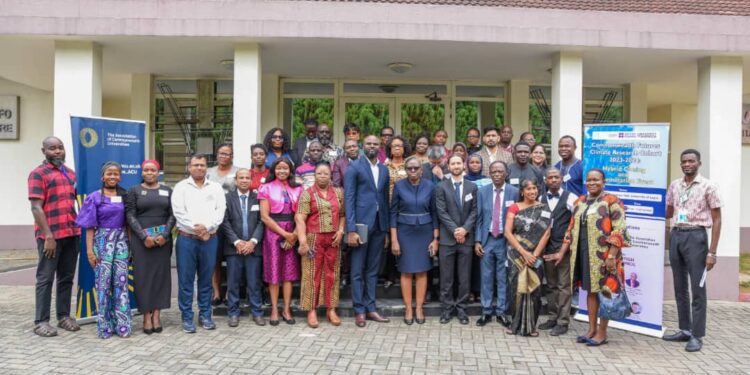




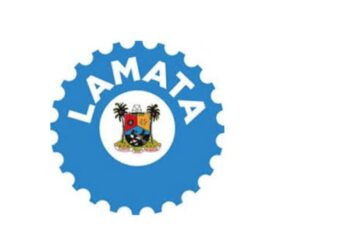
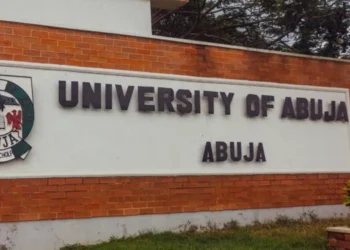
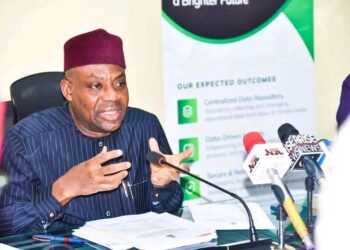
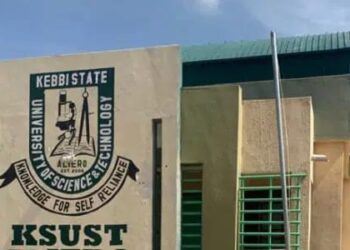
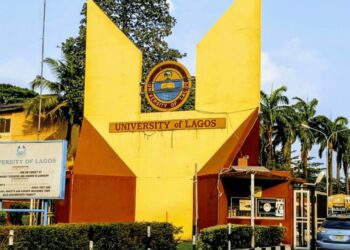











 EduTimes Africa, a product of Education Times Africa, is a magazine publication that aims to lend its support to close the yawning gap in Africa's educational development.
EduTimes Africa, a product of Education Times Africa, is a magazine publication that aims to lend its support to close the yawning gap in Africa's educational development.